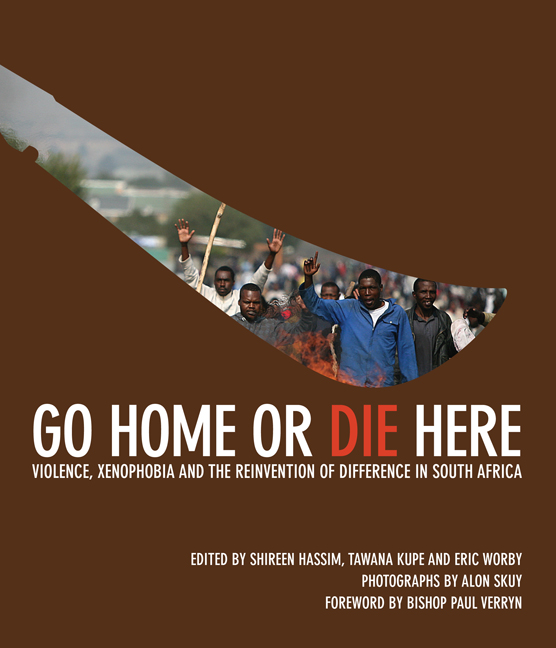5 results
Frontmatter
-
- Book:
- Go Home or Die Here
- Published by:
- Wits University Press
- Published online:
- 04 June 2019
- Print publication:
- 01 November 2008, pp i-vi
-
- Chapter
- Export citation

Go Home or Die Here
- Violence, Xenophobia and the Reinvention of Difference in South Africa
-
- Published by:
- Wits University Press
- Published online:
- 04 June 2019
- Print publication:
- 01 November 2008
Author Biographies
-
- Book:
- Go Home or Die Here
- Published by:
- Wits University Press
- Published online:
- 04 June 2019
- Print publication:
- 01 November 2008, pp 254-259
-
- Chapter
- Export citation
End Notes
-
- Book:
- Go Home or Die Here
- Published by:
- Wits University Press
- Published online:
- 04 June 2019
- Print publication:
- 01 November 2008, pp 242-253
-
- Chapter
- Export citation
Table of Contents
-
- Book:
- Go Home or Die Here
- Published by:
- Wits University Press
- Published online:
- 04 June 2019
- Print publication:
- 01 November 2008, pp vii-vii
-
- Chapter
- Export citation



